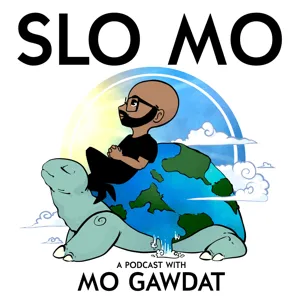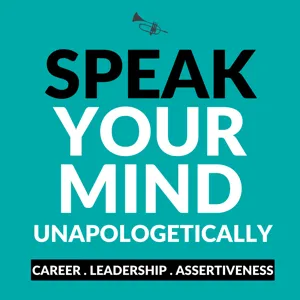Podcast Summary
Joining the military late in life: Age is not a barrier to pursuing leadership roles in the military. Dan Joseph joined at 32 with unique experiences and motivations, learning valuable lessons in resilience and leadership.
Age is just a number when it comes to pursuing leadership roles, even in the military. Dan Joseph joined the army at the age of 32, which is unusually late, but his unique experiences and motivations led him to do so. Before joining, Dan had a successful career in biotech and worked on machine learning algorithms and borderline AI to optimize genes and snip out disease markers. However, seeing the conflict in Iraq and having family ties to the region pushed him to join the military and make a difference. For those considering joining later in life, Dan advises asking a recruiter about age limits as they can change based on the military's needs. The lessons Dan learned in the military, which he shares in his book "Backpack to Rucksack," include the importance of pursuing attrition, creating a positive command climate, using psychological jujitsu, and understanding the differences between garrison and field leadership. Age should not hold anyone back from pursuing leadership roles, and the military offers valuable lessons in resilience and leadership.
Personal experiences and the desire to give back shape life choices: Individuals can be motivated by personal experiences and a desire to contribute to something greater to make significant life changes
Personal experiences and the desire to give back to the country that provided refuge for immigrants can be powerful motivators for individuals to make significant life changes. The speaker, who grew up as a child of immigrants in the United States, felt a deep sense of duty and desire to serve in the military after hearing stories from friends who were deployed. Meanwhile, he felt unfulfilled and drawn to the wrong crowd during his younger years, engaging in superficial relationships and self-destructive behaviors. However, encountering friends in the military and observing their discipline, sharpness, and focus, inspired him to join at the age of 32. Despite his age, he faced no challenges due to his physical fitness and ability to lead. This story highlights the impact of personal experiences and the desire to contribute to something greater on one's life choices.
Consider joining the military for personal growth and opportunities: Despite challenges, military offers life-changing opportunities for personal growth, leadership skills, and physical fitness. Older applicants are valued due to high fitness standards.
Regardless of age or past experiences, one should consider joining the military if they have the desire and the ability to meet physical requirements. The military can provide opportunities for personal growth, leadership skills, and physical fitness. Many people have successfully transformed their lives through military training, despite challenges such as obesity or past criminal records. The military's high standards for fitness have led to recruitment problems among young people, making older applicants more valuable. The speaker's own experience as a combat engineer and platoon leader in the Army significantly impacted his life, teaching him valuable leadership skills and leaving a lasting impression. Even after leaving the military, the speaker is considering re-enlisting and continuing his personal growth.
Military experiences leading to personal growth: Pursuing unpopular or challenging paths can lead to personal growth and deeper understanding of complex issues.
Overcoming challenges and pushing through difficult experiences, whether in the military or in life, can lead to personal growth and a deeper understanding of complex issues. The speaker shares how his decision to avoid alcohol and pursue a master's degree during his military career allowed him to make meaningful connections between human brain function, interpersonal relationships, and organizational dynamics. Additionally, his experience in the military instilled a fire in him to stay physically active and motivated him to continue serving. In his book, "Backpack to Rucksack," the speaker shares insights from military friends and his research in organizational psychology, emphasizing the importance of pursuing unpopular or challenging paths as a filtration mechanism for identifying strong candidates.
Surrounding yourself with top individuals: Dedication and perseverance lead to working with driven individuals. Positive command climate fosters growth and productivity, while negative ones hinder progress. Focus on improving problem sets and maintaining a growth mindset.
Surrounding yourself with top-notch individuals requires dedication and perseverance. In the military and beyond, doing the hard work and filtering out the "riff-raff" leads to rubbing elbows with like-minded, driven individuals. Another crucial concept is command climate, or work culture, which is set by those in leadership positions. A positive command climate fosters growth and productivity, while a negative one can be challenging to navigate. Good leaders address issues as problem sets, enabling their team to find solutions, while toxic leaders adopt a fixed mindset and hinder progress. Ultimately, it's essential to focus on improving problem sets and maintaining a growth mindset, rather than attacking people and involving ego.
Leadership goes beyond orders and status quo: Effective leadership requires self-work, emotional control, and discipline. Knowing yourself outside of work builds confidence for challenging negotiations and prevents being taken advantage of.
Effective leadership goes beyond just giving orders and maintaining the status quo. It requires self-work, emotional control, and discipline. As the EOD example illustrates, a leader's attitude is contagious, and a calm demeanor can help create a positive command climate. In the corporate world, this principle also applies. Knowing who you are outside of work and having a strong sense of self can give you the confidence needed to navigate challenging negotiations and prevent being taken advantage of. Overall, being a good leader is a full-time job that requires intentional effort and personal growth.
Avoid negatively impacting team with personal growth: Leaders must work on ego issues and insecurities to reduce stress and improve focus, and effectively communicate with those in authority using respect and assertiveness.
Leaders in any field, including the military, must work on their personal growth to avoid negatively impacting their team. Ego issues and insecurities can create unnecessary stress and require team members to manage emotions instead of focusing on the job at hand. Moreover, dealing with individuals who wield positional authority can be challenging. It's essential to present knowledge respectfully and assertively while considering the unique personality of the person in charge. This approach, often referred to as "working the angles," allows for effective communication and collaboration. Ultimately, investing in personal growth benefits not only the organization but also personal relationships and overall well-being.
Handling confrontations with assertiveness and calmness: Approach potential enemies privately, communicate learning goals, maintain integrity, and prioritize clear communication for strong relationships and success.
In both military training and life, it's important to handle confrontations with assertiveness and calmness instead of letting emotions take over. When faced with individuals trying to assert dominance, approaching them directly but privately and making it clear that the goal is to learn rather than fight can turn potential enemies into valuable assets. Furthermore, the military environment can be political, and focusing on advancing one's career through manipulation and one-upmanship can hinder effectiveness and teamwork. Instead, maintaining integrity and clear communication is essential for building strong relationships and achieving success.
Serving those around you for effective leadership: Effective leadership involves listening actively, removing red tape, and focusing on improving the unit as a whole rather than solely advancing in the hierarchy.
Effective leadership in any organization involves serving those around you rather than using rank and authority to promote your own agenda at their expense. By actively listening to those around you and removing red tape, you can make incremental improvements throughout the organization. A servant leadership approach focuses on improving the unit as a whole, rather than solely advancing in the hierarchy. A book like "Once an Eagle" highlights the importance of this approach and offers valuable insights into staying calm and composed during chaotic situations. Ultimately, the more rank you have, the more people you serve, and the more you can positively impact the organization as a whole.
Leading with Emotional Intelligence and Transparency: During challenging times, remain calm, acknowledge difficult situations, be open and honest, and understand the differences between garrison and field leadership to build trust and effectively lead your team.
Effective leadership, especially during challenging times, requires emotional intelligence and transparency. When faced with resistance to change, it's essential to remain calm and composed, avoiding anger and frustration. By acknowledging the difficult situation, being open and honest, and maintaining a sense of awareness, leaders can help quell anxiety and build trust among their team. Additionally, understanding the differences between garrison and field leadership is crucial. While garrison leadership focuses on office work and administration, field leadership involves dealing with kinetic factors and tactical situations. Being good at both is ideal, but if one must choose, prioritizing being a good person is essential. Your team will have your back, regardless of your strengths or weaknesses in the field or office.
Understanding Leadership Strengths and Weaknesses: Effective leaders embrace their strengths, lean on team for weaknesses, and prioritize kindness and relationships.
Effective leadership involves understanding and embracing one's strengths and weaknesses, and building a team that complements those traits. The discussion touched upon the differences between tactical and strategic leaders, such as Patton and Eisenhower, and how their personalities suited their roles. Leaders who find themselves in a role that doesn't align with their abilities should lean into their strengths and rely on their team to compensate for their weaknesses. Furthermore, treating those around us with kindness, humanity, and a focus on relationships can make a significant impact, particularly for veterans and active duty service members dealing with the challenges of transitioning back to civilian life.
Effective leadership goes beyond tactics to prioritize connection and empathy: Leaders who prioritize human connections and empathy can be just as effective as those who focus solely on strategy, leading to increased resilience and better outcomes.
Effective leadership goes beyond just tactical skills and includes the ability to connect with team members on a deeper level. According to Dan Joseph, this doesn't make a leader vulnerable or weak, but rather resilient and capable of saving lives. Joseph, a military expert and author of the book "Backpack to Rucksack," emphasizes the importance of understanding the psychological implications of human relationships in leadership. His research shows that leaders who prioritize connection and empathy can be just as effective in achieving tactical goals as those who focus solely on strategy. To learn more about Joseph's work and his book, visit combatpsych.com or search for "Dan Joseph" on Amazon. Remember, strong connections with team members can lead to increased resilience and better outcomes for everyone involved.











